The intractable, insidious conflict between Islamism and the West
There are no easy solutions here — because, in no small part, the West inadvertently co-authors Islamist terrorism
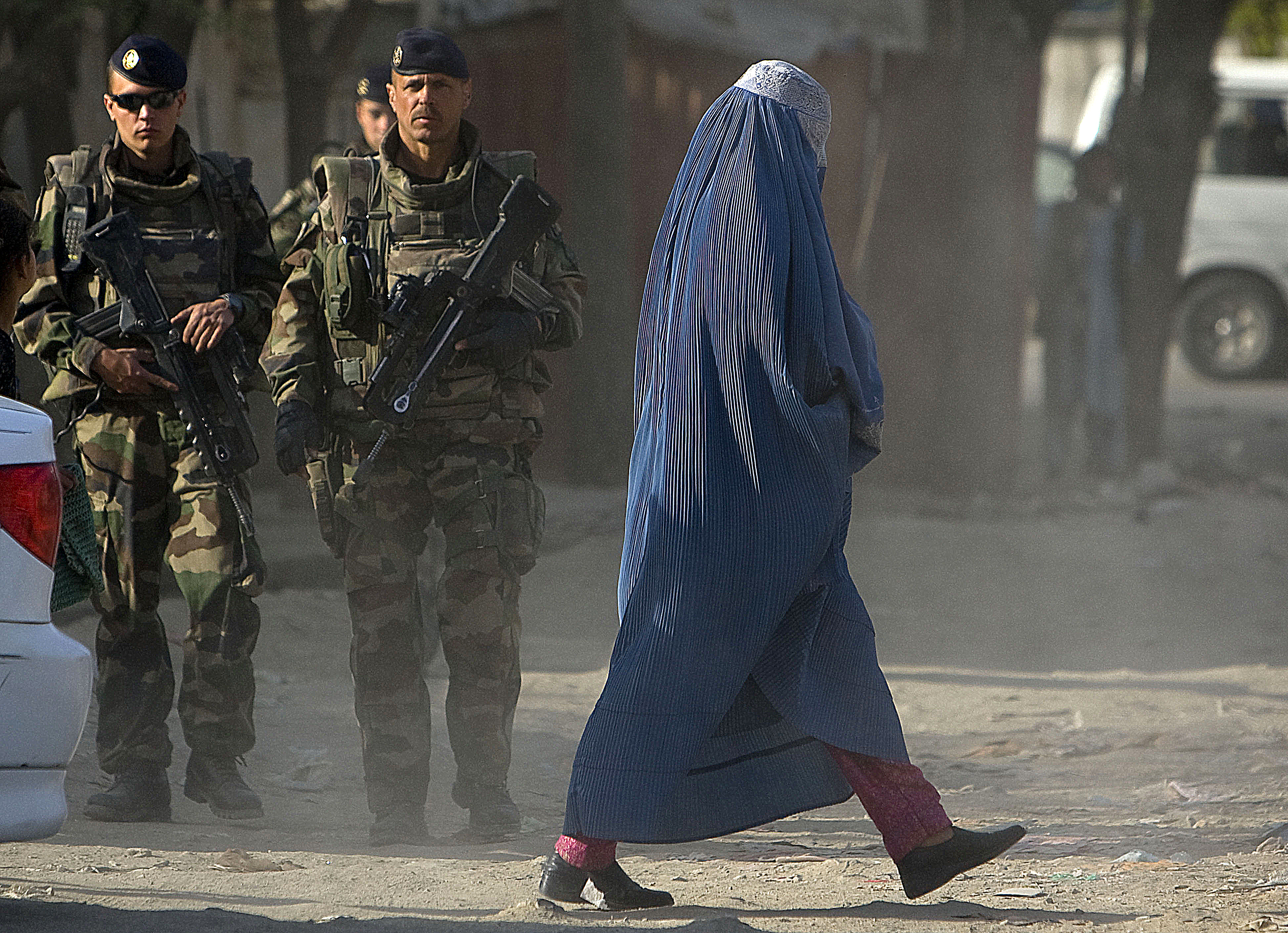

When al Qaeda struck at the United States in 2001, its targets were hard symbols of American power and decision-making: the Pentagon, the Capitol, and the financial capital. When ISIS struck Paris on Friday, its targets were soft symbols of Western lifestyle: sport, restaurants, a secular concert. People eating, drinking, and laughing at night for their own pleasure.
ISIS knows our thinking. It knows how to make us afraid.
In response, so many in the West seem to have an easy solution to our renewed terrorism problem. Just hold our Sunni-state allies accountable and demand that they don't fund ISIS and other terrorist groups. Or just get better at integrating Muslims into the European community. Or just stop admitting Syrian refugees into the U.S. Or just expel the Islamists from Europe. Or just admit it, Islam itself is the problem.
Subscribe to The Week
Escape your echo chamber. Get the facts behind the news, plus analysis from multiple perspectives.

Sign up for The Week's Free Newsletters
From our morning news briefing to a weekly Good News Newsletter, get the best of The Week delivered directly to your inbox.
From our morning news briefing to a weekly Good News Newsletter, get the best of The Week delivered directly to your inbox.
We reach for "just [something]" solutions like these because we are appalled and, let's be honest, frightened. These solutions seem comforting. But none are satisfying.
If we lash out in Syria, or against Muslims here at home, we simply prove the extremists' argument correct, that we are wicked infidels who hate all Muslims, and that we must be stopped by any means necessary.
If we appease or wriggle our way out of confrontation, we prove another of their arguments correct, that we are a weak civilization, unwilling to protect or avenge our sons and daughters. A civilization so pitiful is asking for the sword.
So let's face this hard truth: There is no easy "just [something]" solution because the West inadvertently co-authors Islamist terrorism.
We know this is true on a basic level. In but one small example: ISIS used American arms to establish its caliphate. It steals them from the Iraqi army we made to fill in the chaos left behind after we smashed the Iraqi state. It steals them from "moderate" rebels we covertly armed in Syria.
But the West also inadvertently abets Islamist terrorism at a deeper level, simply by being itself. The West has created a world order that is, in many ways, indifferent or hostile to Islamic society. This Western world order's very existence is an affront to Islamic theology, and its humiliations reach deep into the Islamic world itself.
In that sense, there is no way to militarily defeat Islamist terrorism, because Islamist terrorism is a plausible, if horrifying, response by a small number of extremist Muslims to the historical and theological crisis of Islamic civilization's defeat and humiliation over centuries, first at the hands of secular states from Christendom, and more recently at the hands of a tiny Jewish state.
Muslims believe that God granted the Prophet and his followers astounding military victories as a sign of his favor. But this expansion was eventually halted and reversed. There was the reconquest of Spain in the 15th century, the defeat of Muslim forces at Lepanto in the 16th century, and the fall of the Ottoman Empire in the early 20th century. According to Islam's religious tenets, Islamic civilization's defeats, reversals, and retreats are not just unfortunate turns of history, but can be viewed as signs of apostasy and a need for reform of the ummah. It is not a coincidence that after the fall of the Ottoman Empire, Salafist and Wahhabist Islam grew. Wahhabism, for instance, grew out of the Hanbali school of Islamic jurisprudence, which advocates a constant return to the sources of Islam as a source of renewal and purification for the faithful.
Today, many Muslims experience their own governments as pretender authorities. The Gulf States, Saudi Arabia, Egypt, Yemen, Lebanon, Iraq, and Syria have long been run by exclusive factions, or gangs. Many believe that Islam calls the residents of these states into a brotherhood that transcends their divided nationalities, and it bids them toward a noble life of piety, hospitality, and prayer. Islam also acts as a constant critique of these states, which in turn helps Muslims to endure the indignities of these regimes, while they await the true community of the Prophet to come into being.
Living in these regimes is nothing like living under a Western government. In the West, governments have a more legitimate authority and a greater claim on our loyalty. Western governments institutionalize opposition, conciliation, and critique. Western governments also announce that they exist to protect freedom of speech (freedom to blaspheme), freedom of religion (freedom of unbelief), and freedom of choice (freedom to sin).
This strikes a certain type of fundamentalist as damnable hubris. Especially when these liberal ideals are sent into the Islamic world through popular entertainment, through the coercion of international bodies and treaties, through the work of NGOs, and the attempts to win "hearts and minds" during the occasional war. Consider this quote from someone who was educated in the West.
"If one allows the infidels to continue playing their role of corrupters on Earth, their eventual moral punishment will be all the stronger. Thus, if we kill the infidels in order to put a stop to their [corrupting] activities, we have indeed done them a service. For their eventual punishment will be less. To allow the infidels to stay alive means to let them do more corrupting. [To kill them] is a surgical operation commanded by Allah the Creator." [Ayatollah Khomeini, 1984]
English philosopher Roger Scruton, commenting on Khomeini's reaction to the West, says of his sentiments:
"[T]hey are a vivid testimony to the fact that the virtues of Western political systems are, to a certain kind of Islamic mind, imperceptible — or perceptible, as they were to Qutb and Atta, only as hideous moral failings. Even while enjoying the peace, prosperity, and freedom that issue from a secular rule of law, a person who regards the shari'a as the unique path to salvation may see these things only as the signs of a spiritual emptiness or corruption. [Roger Scruton]
The virtues of Western governments are equally imperceptible to many Muslims who are not radicals. It's not hard to see why. Consider the descendant of Algerian immigrants to France who cannot find work and confronts racism and poverty in a country that demands not just his obedience to authority, but his respect and esteem. Or the descendant of Turks in Germany, living in a society that tries to seduce him while constantly telling him that he is merely an object of toleration, a person not for himself, but only worth anything as a testimony to Western liberality.
The alienation and desire for negation these men feel may be closer to nihilism at first, but nihilism and religious radicalism are not so far apart in their despair over a phony, compromised, and compromising world.
What is so frightening about the religious energies that have built an Islamic state in Iran and now work to establish a Sunni caliphate around Raqqa are the way they have exalted martyrdom to a new place in this extreme version of the Islamic religion. The determination to commit yourself to a suicide attack is to announce your power over the world — and your power to lay down your life. It is to finally stand above the others who merely tolerate you, who go out on a Friday night for pleasure and later run screaming from the danger that you have become.
And so there is no "just [something]" solution. The West and Islamism are trapped in a set of interlocking hostilities. European nations have found no sure way of integrating their large and growing Muslim populations, no way of making them part of the institutionalized bargains that underpin the Western order. Their societies are thus machines for creating alienation. Meanwhile, Islamic reformers have not found a way to make various strains of Islamism more liberal and tolerant in spirit while Islamic civilization remains marginal as a global geopolitical force. And the process of globalization, brought on by Western power, brings Western offenses to the Islamic world, and offended Muslims into the Western world.
If we are looking for a "just [something]" solution, the something has got to be much, much bigger. A revolution within Islamist theology and self-conception. Or a complete change of character and ideology for European nations.
We may get these, but at what price? And after how many cycles where war, anarchy, and theocracy overflows in the Middle East, creating refugees, terror plots, overreactions, and the effacement of the liberality of the West?
Sign up for Today's Best Articles in your inbox
A free daily email with the biggest news stories of the day – and the best features from TheWeek.com
Michael Brendan Dougherty is senior correspondent at TheWeek.com. He is the founder and editor of The Slurve, a newsletter about baseball. His work has appeared in The New York Times Magazine, ESPN Magazine, Slate and The American Conservative.
-
 Interest rate cut: the winners and losers
Interest rate cut: the winners and losersThe Explainer The Bank of England's rate cut is not good news for everyone
-
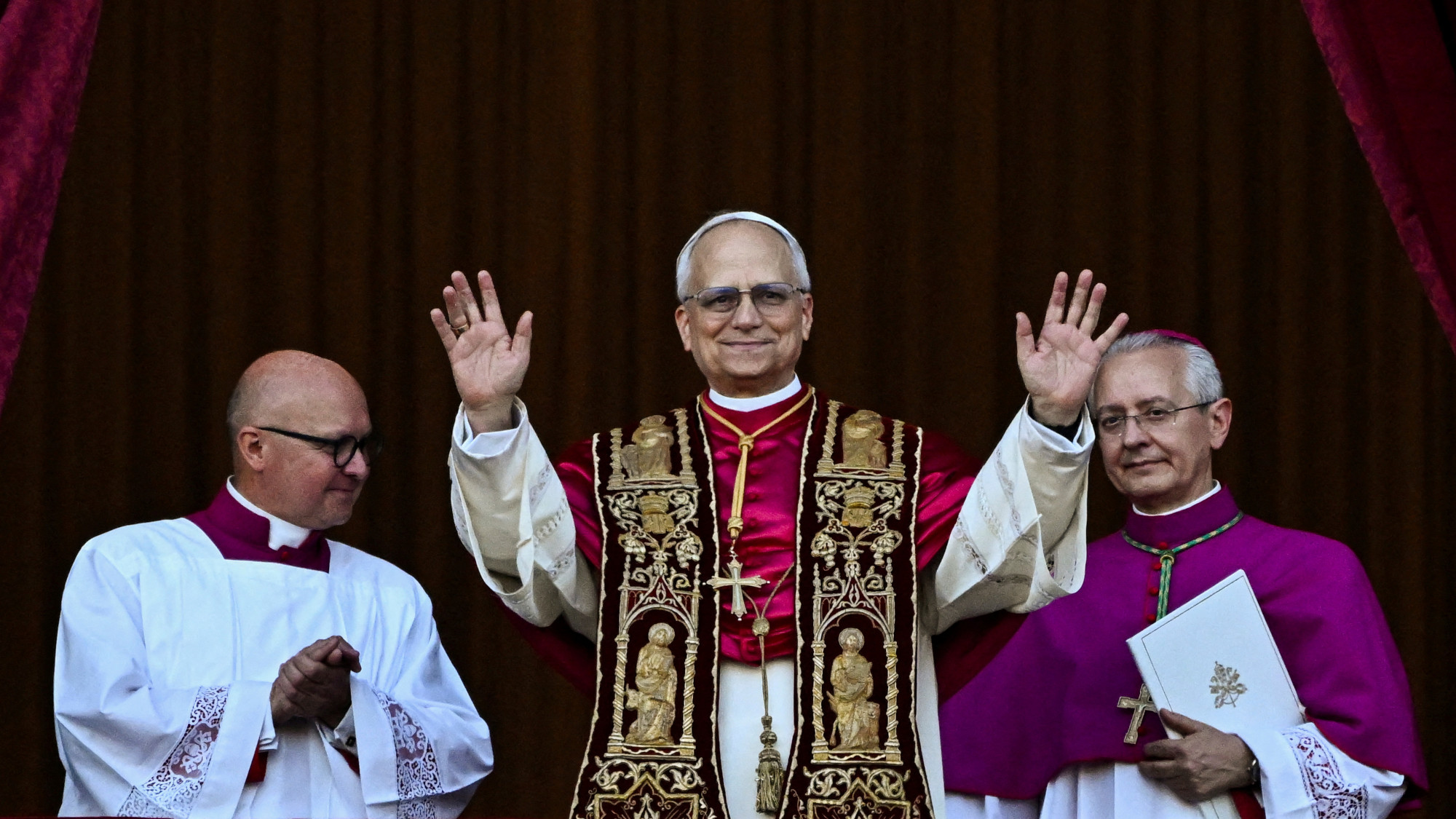 Quiz of The Week: 3 – 9 May
Quiz of The Week: 3 – 9 MayHave you been paying attention to The Week's news?
-
 The Week Unwrapped: Will robots benefit from a sense of touch?
The Week Unwrapped: Will robots benefit from a sense of touch?Podcast Plus, has Donald Trump given centrism a new lease of life? And was it wrong to release the deadly film Rust?
-
 Houston Texans QB Deshaun Watson accused of sexual misconduct in 7 lawsuits, with more likely to come
Houston Texans QB Deshaun Watson accused of sexual misconduct in 7 lawsuits, with more likely to comeSpeed Read
-
 Former NFL quarterback Tarvaris Jackson killed in car crash at 36
Former NFL quarterback Tarvaris Jackson killed in car crash at 36Speed Read
-
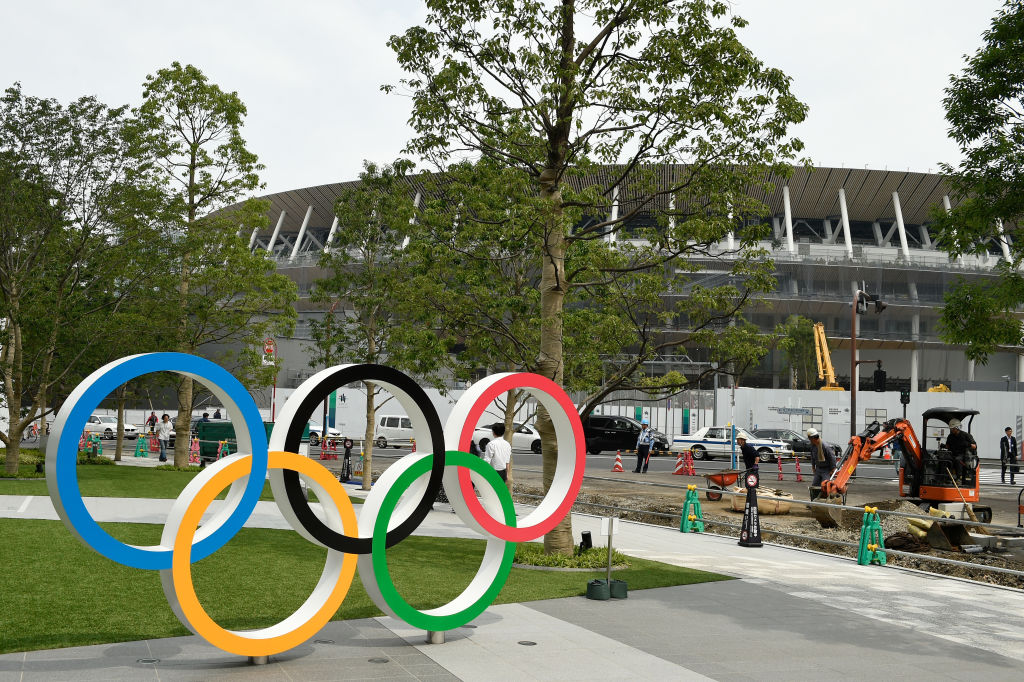 Spokesman: Tokyo Olympics won't be canceled due to coronavirus
Spokesman: Tokyo Olympics won't be canceled due to coronavirusSpeed Read
-
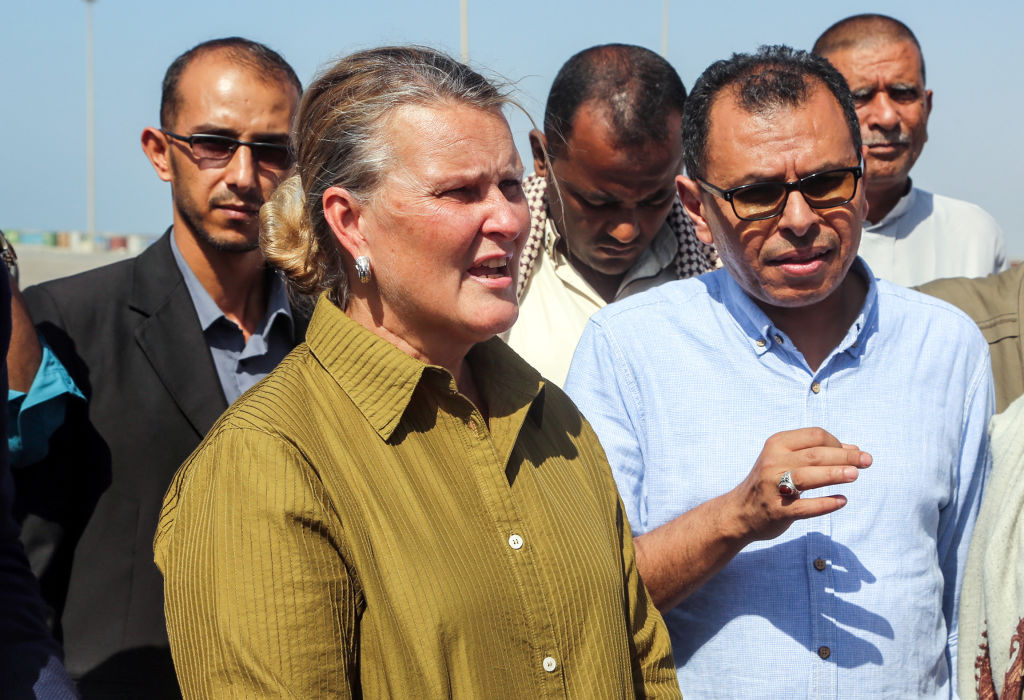 U.N. official says 'unjustified' killings in Yemen conflict represent 'shocking' failure to 'protect civilians'
U.N. official says 'unjustified' killings in Yemen conflict represent 'shocking' failure to 'protect civilians'Speed Read
-
 Late night hosts laugh at Trump's Super Bowl gaffes, rue his witness-less Senate impeachment trial
Late night hosts laugh at Trump's Super Bowl gaffes, rue his witness-less Senate impeachment trialSpeed Read
-
 College baseball coach, his wife, and daughter killed in crash with Kobe Bryant
College baseball coach, his wife, and daughter killed in crash with Kobe BryantSpeed Read
-
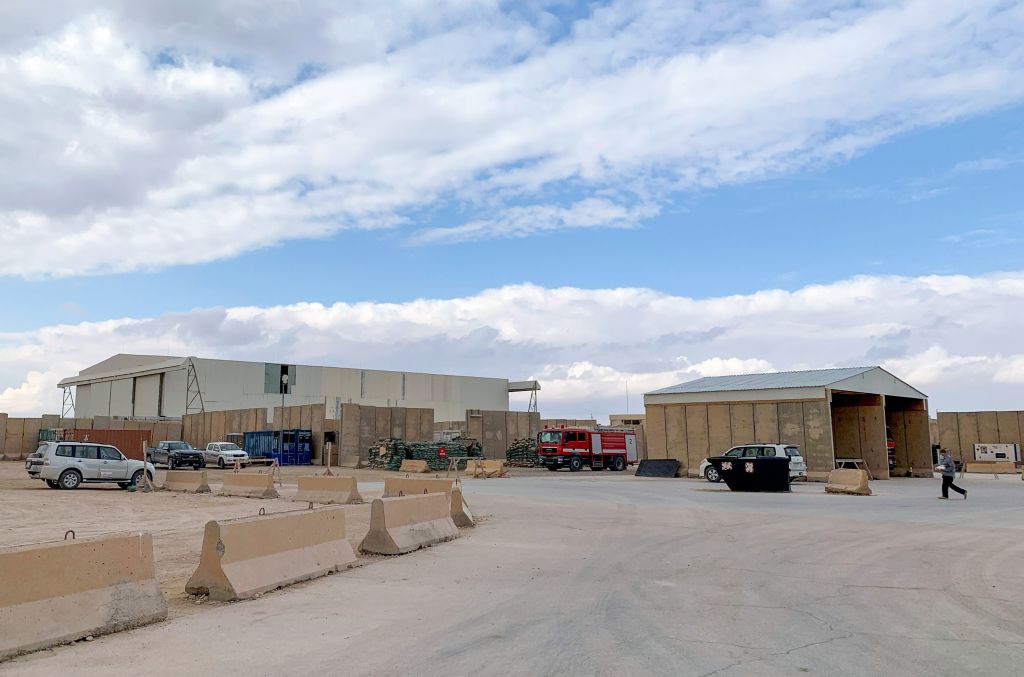 U.S. commander: Iranian missile attack designed to 'inflict as many casualties as possible'
U.S. commander: Iranian missile attack designed to 'inflict as many casualties as possible'Speed Read
-
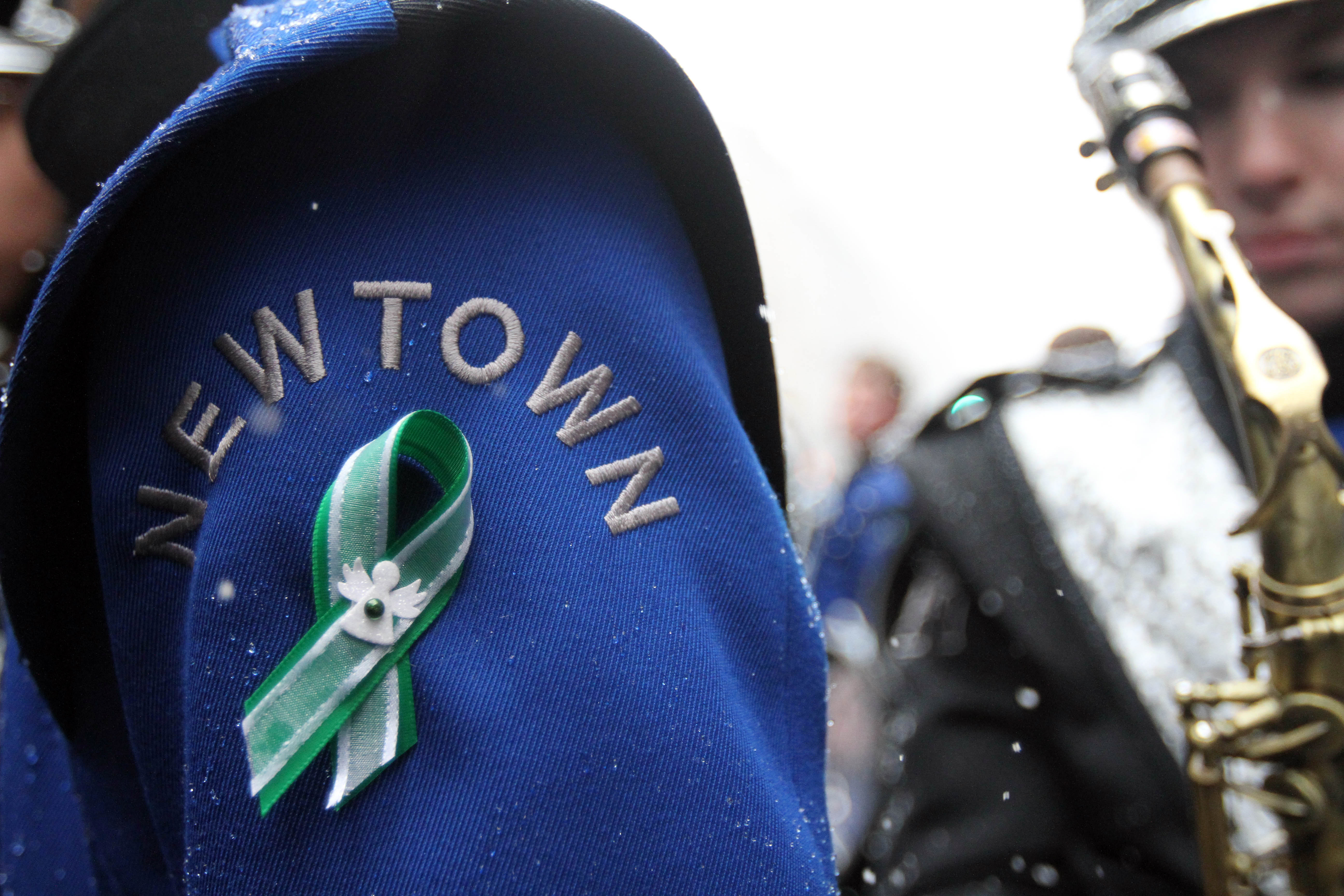 Newtown High School wins state football championship on anniversary of Sandy Hook shooting
Newtown High School wins state football championship on anniversary of Sandy Hook shootingSpeed Read